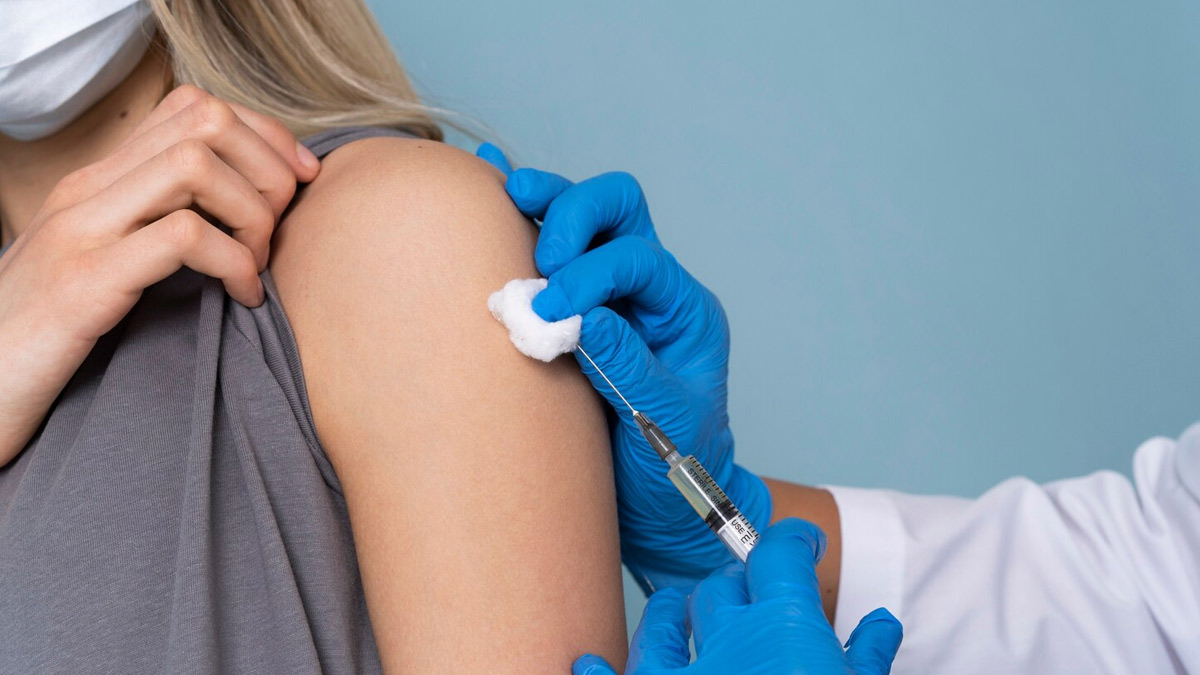
Pancreatic and colorectal cancers are two of the most concerning cancers. Both are notoriously difficult to detect in their early stages, primarily due to the lack of specific early symptoms and their location within the body. Additionally, the two diseases are prone to recurrence after initial treatment.
Table of Content:-
While there is still a long way to go to find a solution to preventing the two types of cancers, in an early-phase trial, a new vaccine has shown promise in preventing recurrence in pancreatic and colorectal cancer patients. The study published in Nature Medicine suggests that the vaccine, based on peptides, can cause an immune response against cancer-causing cells in the lymph nodes.
“After a long-term follow-up of this study, we were able to demonstrate that the group of patients who mounted an immune response have a greater likelihood of not having their cancer return and living longer compared to the historical expectation of what that patient would do,” said Prof. Zev Wainberg, an oncologist at the University of California, Los Angeles, and a co-author of the study.
Also Read: New Breast Cancer Vaccine Breakthrough: How It Works, Who Will Benefit, And Why It Matters
Study Details And Findings

The new study published on August 11, 2025, has shown encouraging results for a cancer vaccine designed to prevent relapse in patients with pancreatic and colorectal cancer—two of the deadliest cancer types.
The phase 1 trial tested the vaccine, ELI-002 2P, in 25 patients who had completed surgery and other standard treatments but still had signs of minimal residual disease in their blood. MRD means tiny traces of cancer remain, which can’t be detected by scans but often lead to relapse. The vaccine specifically targeted KRAS mutations—particularly G12D and G12R—which are common in these cancers and play a key role in tumour growth. According to the study authors, KRAS mutations occur in about 90% of pancreatic cancers and about 40% of colorectal cancers. These mutations can lead to the production of altered KRAS proteins that drive uncontrolled cell division and proliferation, contributing to cancer development.
Using a novel “amphiphile” delivery system, the vaccine carried cancer-targeting peptides directly to the lymph nodes, where immune cells are trained to attack cancer cells.
After a median follow-up of nearly 20 months, researchers found that patients who developed strong KRAS-specific immune responses remained cancer-free for much longer than those with weaker responses. In fact, the median relapse-free survival time was not reached in the strong-response group, compared to just over three months in the weaker-response group. About 71% of patients developed both CD4+ and CD8+ T cells—two types of immune cells that work together to fight cancer.
Notably, the vaccine also triggered “antigen spreading” in 67% of patients, meaning their immune systems began attacking other cancer-related targets beyond those included in the vaccine.
For pancreatic cancer patients, who face one of the highest relapse rates, the median relapse-free survival was about 15 months, with overall survival reaching nearly 29 months. No new safety concerns were reported during the extended follow-up. While larger trials are still needed, these findings suggest that targeting KRAS mutations with a lymph node–directed vaccine could become a valuable way to keep cancer from returning, offering new hope for patients facing limited treatment options.
What Does The New Vaccine Mean For Cancer Patients?

According to Dr Mandeep Singh, Chief Oncologist, Art of Healing Cancer, Delhi, a vaccine that trains the immune system to recognise and attack residual cancer cells could be a breakthrough. “While Phase 1 studies mainly focus on safety, the initial immune response seen in patients suggests that this approach has real potential.”
“If future trials confirm these benefits, we could be looking at a new class of cancer therapies that use the immune system in a targeted way to keep these cancers from coming back. For patients, this would mean improved survival rates across two of the most challenging cancer types and potentially fewer long-term side effects compared to ongoing chemotherapy,” he adds.
It is important to note that currently, even after surgery and chemotherapy, the chances of recurrence are high. “By preventing recurrence, the vaccine could extend remission periods, give patients more years without disease, and reduce the need for repeated rounds of intensive chemotherapy. This would not only improve physical health outcomes but also provide tremendous psychological relief for patients and their families.”
However, we must be cautious—larger trials are necessary to confirm its effectiveness and ensure it works in a broad patient population.
Also Read: The Rise of Personalised Cancer Vaccines: A Game Changer For Treatment?
How To Reduce The Risk Of Pancreatic Cancer And Colorectal Cancer?

While not all cases of pancreatic cancer or colorectal cancer can be prevented, certain lifestyle choices can help reduce risk.
- Avoid tobacco, as smoking significantly increases risk.
- Maintaining a healthy weight through a balanced diet
- Regular exercise
- Following diets rich in fruits, vegetables, and whole grains
- Eating foods low in processed meats
- Limiting alcohol intake
- Managing chronic conditions like diabetes and pancreatitis
It is also crucial that you discuss any family history with a doctor, as some individuals may benefit from genetic counselling and screening.
Also watch this video
How we keep this article up to date:
We work with experts and keep a close eye on the latest in health and wellness. Whenever there is a new research or helpful information, we update our articles with accurate and useful advice.
Current Version
